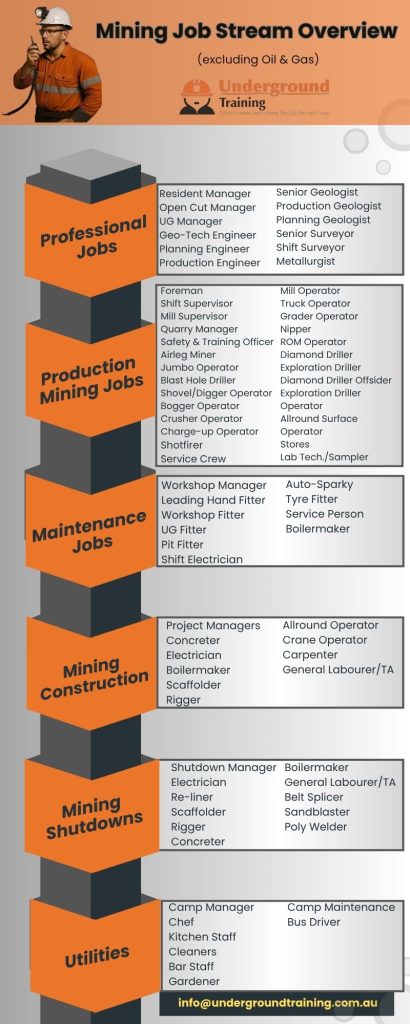Who Really Gets to Call Themselves a Miner – and How to Spot the Fakes
Who Really Gets to Call Themselves a Miner – and How to Spot the Fakes
Outside the industry, most people think “If you work on a mine site, you’re a miner.”
Inside the industry, it’s not that simple – and getting this wrong can cost you years, thousands in wasted tickets, and missed job opportunities.
The Production Mining Jobs Everyone Wants
When people say miner, they’re usually picturing big trucks, jumbos, boggers, or drill rigs – the jobs in the pit or underground production crews. These roles are hard to get into because most don’t understand what’s actually required.
Enter the “fake miner” – people from other areas of the industry giving bad advice, often steering newcomers toward dead‑end roles with no pathway to production.
How the Industry Sees It
Titles matter. So does culture. Here’s the breakdown:
• Airleg miners – The only ones truly called miners. Tough, high‑paid, still using handheld tools underground.
• Underground crew – Jumbo operator, bogger operator, service crew, etc. Always “operator” Never “driver” (a huge insult underground).
• Open pit – Drillers, blast crew, truck operators (“pit fairies” is the affectionate nickname).
• Mill – Mill operators or “mill rats.”
• Maintenance – Fitters, sparkies, auto‑sparkies. Often insulted if called miners.
• Exploration – Drillers, offsiders, field assistants.
• Oil & gas, camp utilities, shutdown, construction/civil – Not miners. These jobs don’t transfer into production mining and are where most bad advice comes from.

Why It Matters
Foremen hire based on skills relevant to production roles.
If your resume says mining experience but it’s actually utility, shutdown, or civil work, you’ll likely get binned without a reply. When you say you have “mining experience” employers expect you to know how to operate production equipment and understand mine culture – not start from zero.
Getting In the Right Way
Entry‑level hard‑rock underground jobs include:
• Nipper
• Truck operator
• Service crew
• Offsider
You don’t need expensive equipment tickets – employers issue their own. What matters is proving you understand how the mine works: the culture, language, processes, and expectations.
Training That Works
Our DIY Introduction to Underground Mining covers résumé overhaul, interview prep, and direct job leads.
Our Workready Package goes further – pairing you with a ticketed WA shift boss to coach you on mining knowledge, refine your résumé, prep you for interviews, and create a targeted job‑entry plan.
📌 DIY Introduction to Underground Mining – A 50-hour course packed with essential industry knowledge.
✅ Includes step-by-step resume guidance (takes about 2 hours with our template).
✅ Interview preparation questions to ensure you’re ready to impress.
✅ Direct mining company application details to kickstart your job search.
💡 Want a professionally crafted resume? Check out our 3 Step Plan Package for expert assistance!
Need Extra Help Breaking Into Mining?
📌 Workready Package – Get personalized support from a WA ticketed shift boss:
✅ Includes DIY Introduction to Underground Mining course package.
✅ Resume rework to highlight your strengths effectively and make it mining friendly.
✅ Interview prep & personalised career strategy to maximise success.
For more details, leave your contact information on our Enquiry Form page.
I hope this info helps.
- Mining in Western Australia
- $2500 mining job no one knows about
- Remote work in Australia
- Entry level remote jobs
- 100k a year entry level mining jobs
- Mining entry level jobs
- Entry level jobs mining
- How to get a mining job
- Mining jobs with no experience in Australia
- Mining Australia jobs
- Mining jobs Australia no experience
#undergroundmining
#undergroundtraining
#entrylevelminingjobs
#fifoentryleveljobs
#fifojobsforbeginners
#miningaustralia
#miningcareers
#miningjobsaustralianoexperience
#noexperiencejobs
#westernaustraliamining
#workingholidayvisaaustralia
#highpayingjobs
#getaminingjob
#miningjobs

